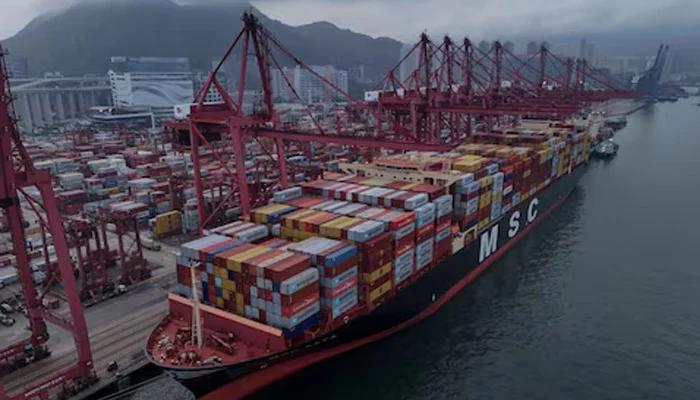China is reportedly considering exempting certain US imports from its significant 125% tariffs and is requesting businesses to submit lists of goods that could qualify. This move is being seen as a major indication that Beijing is increasingly concerned about the economic repercussions of its ongoing trade war with Washington.
According to a source who wished to remain anonymous, a taskforce within the Ministry of Commerce is currently compiling lists of items that might be eligible for tariff exemptions and is inviting companies to submit their own requests for consideration.
Financial news magazine Caijing reported on Friday, citing sources, that Beijing is preparing to include eight semiconductor-related items in the exemption list, although memory chips are not among them.
A list encompassing 131 categories of products potentially eligible for exemptions has been widely circulating on social media platforms and among various businesses and trade organizations on Friday. Reuters was unable to independently verify this list, which includes items ranging from vaccines and chemicals to jet engines.
Repeated attempts to contact China’s customs department by phone went unanswered. Neither the customs department nor the Ministry of Commerce immediately responded to questions sent via fax.
Bloomberg was the first to report on Friday that China was considering these tariff exemptions.
These potential exemptions signal that, similar to Washington, Beijing is deeply concerned about the economic strain being felt across the country as the world’s two largest economies increasingly decouple.
While Washington has stated that the current trade situation is economically unsustainable and has already granted tariff exemptions to certain electronic goods, China has repeatedly asserted its willingness to fight the trade war to its conclusion unless the US removes its tariffs.
However, beneath this strong rhetoric, China’s economy is entering the trade war while grappling with the risk of deflation. Demand remains weak, and consumer spending and sentiment have not fully recovered to pre-pandemic levels.
The Chinese government is urging exporters affected by the tariffs to shift their focus to domestic markets. However, companies report lower profit margins, weaker demand, and less reliable customers in these local markets.
These potential tariff exemptions represent a more significant gesture of support for affected industries. Furthermore, by allowing some trade to resume, they could also alleviate some of the economic pressure on the US economy and, consequently, reduce some of the pressure on the White House.



